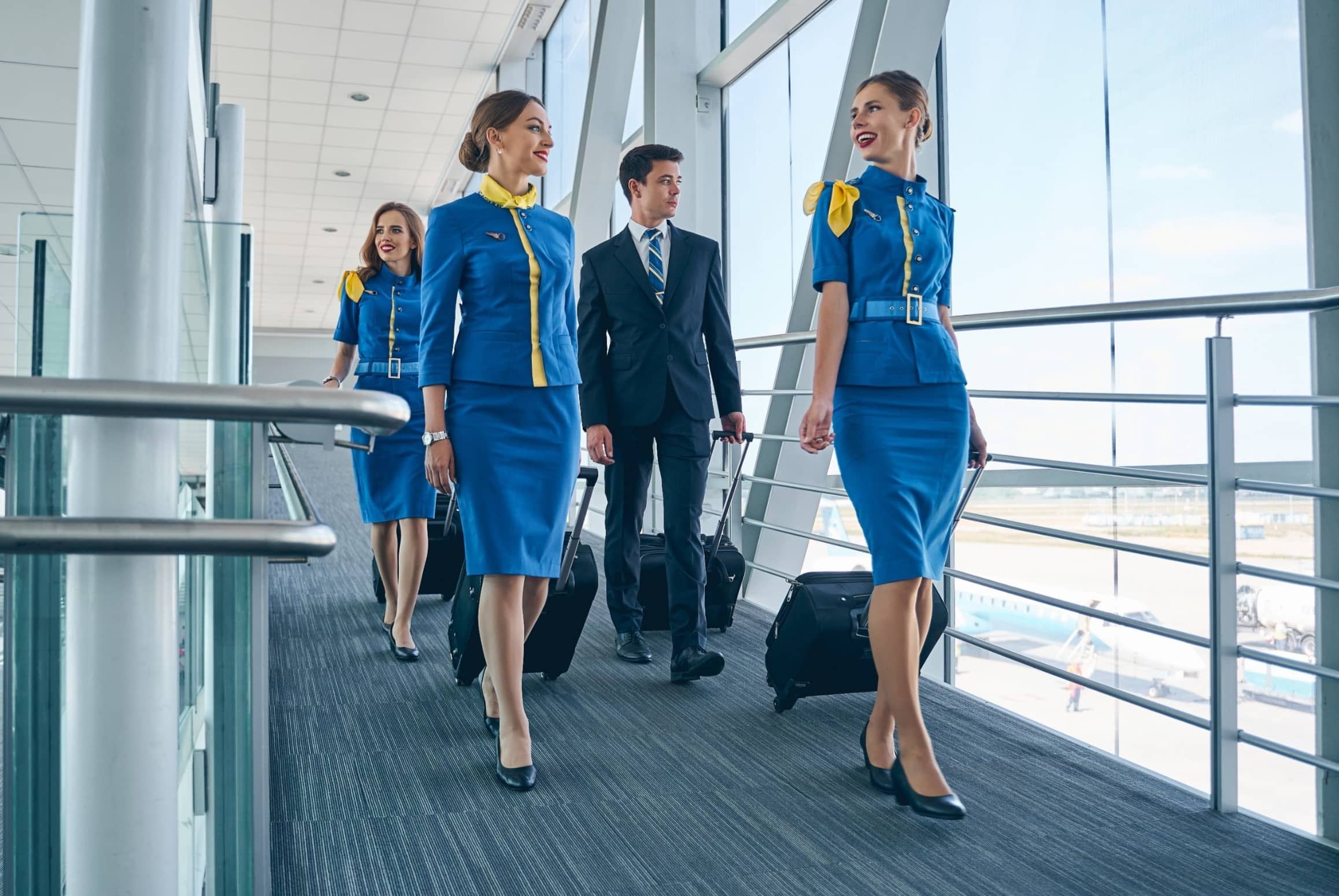
Ever wondered what it's like to be a flight attendant? These professionals do more than serve drinks and snacks. They ensure passenger safety, handle emergencies, and make long flights bearable. Flight attendants undergo rigorous training, learning everything from first aid to handling unruly passengers. Their job isn't just glamorous travel; it involves long hours, jet lag, and sometimes dealing with difficult situations. Yet, many love the adventure and meeting new people. Curious about what else goes on behind the scenes? Let's dive into 13 fascinating facts about flight attendants that will give you a new appreciation for these airborne heroes.
Key Takeaways:
- Flight attendants do much more than serve drinks. They're trained in safety, medical emergencies, and security measures to keep passengers safe.
- Becoming a flight attendant is intense. They undergo extensive training, including mock drills, and must maintain a polished appearance while working irregular hours.
The Role of Flight Attendants
Flight attendants are often seen as the friendly faces serving drinks on planes, but their job involves much more. They ensure passenger safety, provide first aid, and handle emergencies.
-
Safety First: Flight attendants undergo rigorous training in safety procedures, including emergency evacuations, firefighting, and water landings. Their primary role is to keep passengers safe.
-
Medical Training: They are trained to handle medical emergencies. This includes CPR, using defibrillators, and managing in-flight medical issues.
-
Security Measures: Flight attendants are trained to identify and manage potential security threats. They play a crucial role in maintaining the security of the aircraft.
The Training Process
Becoming a flight attendant is not as simple as it seems. The training process is intense and comprehensive.
-
Extensive Training: Training programs can last from 4 to 8 weeks. They cover everything from safety protocols to customer service skills.
-
Mock Drills: Trainees participate in simulated emergency scenarios. These drills prepare them for real-life situations they might encounter.
-
Certification: After completing training, flight attendants must pass exams to receive certification from aviation authorities.
The Lifestyle of a Flight Attendant
The life of a flight attendant is unique and often glamorous, but it comes with its own set of challenges.
-
Travel Perks: One of the biggest perks is the opportunity to travel the world. Flight attendants often get to explore new destinations during layovers.
-
Irregular Hours: They work irregular hours, including nights, weekends, and holidays. This can make maintaining a regular routine challenging.
-
Jet Lag: Constantly crossing time zones can lead to chronic jet lag. Flight attendants develop strategies to cope with this.
Fun and Interesting Facts
There are many lesser-known facts about flight attendants that might surprise you.
-
Language Skills: Many flight attendants are multilingual. This helps them communicate with passengers from different countries.
-
Uniforms: Airlines have strict guidelines for uniforms. Flight attendants must maintain a polished appearance at all times.
-
In-Flight Duties: Beyond serving food and drinks, they also manage passenger boarding, assist with luggage, and ensure everyone follows safety regulations.
-
Longevity: Some flight attendants have incredibly long careers. It's not uncommon to find attendants who have been flying for over 30 years.
Final Words on Flight Attendants
Flight attendants do more than serve drinks and snacks. They ensure passenger safety, handle medical emergencies, and even deal with unruly passengers. Their training is rigorous, covering everything from first aid to emergency evacuations. These professionals often work long hours, crossing multiple time zones, which can be physically and mentally taxing. Despite the challenges, many find the job rewarding due to the travel opportunities and the chance to meet people from all walks of life. Next time you fly, remember the dedication and hard work that flight attendants put in to make your journey safe and comfortable. Their role is crucial in the aviation industry, and they deserve our respect and appreciation. So, next time you're on a plane, give a nod or a smile to the flight attendants—they're doing a lot more than you might think.
Frequently Asked Questions
Was this page helpful?
Our commitment to delivering trustworthy and engaging content is at the heart of what we do. Each fact on our site is contributed by real users like you, bringing a wealth of diverse insights and information. To ensure the highest standards of accuracy and reliability, our dedicated editors meticulously review each submission. This process guarantees that the facts we share are not only fascinating but also credible. Trust in our commitment to quality and authenticity as you explore and learn with us.


